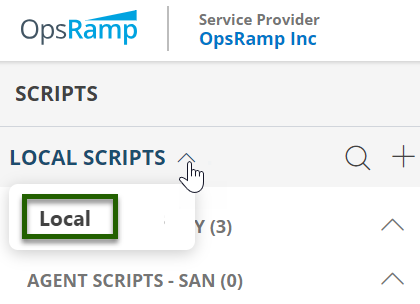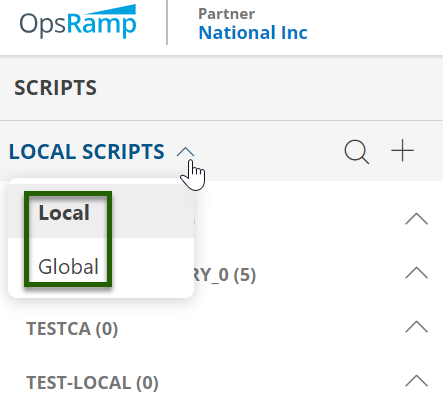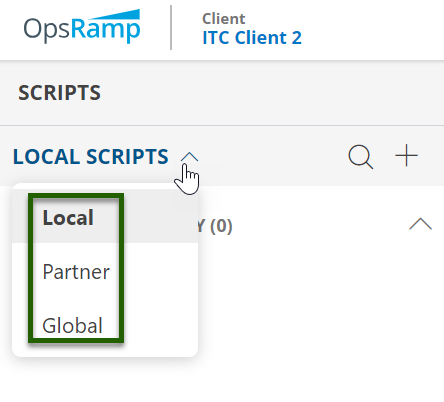Introduction
A script is a user-defined job, you can define your own job tasks by writing code to be included in OS and SQL scripts.
Scripts are partner specific. For example, a script can be created, assigned, and scheduled at the partner-level and the client-level devices.
Workflow
Following are the workflow of scripts:

User Level Permissions
There are three types of scripts that can be created and managed based on user level permissions. Below are the scenarios describing who can manage and create the scripts:
Scenario 1: Service Provider (SP) User
If you are an SP user, you have the following script support:
- Local: User can add/create, edit, and remove scripts.

Scenario 2: Partner User
If you are a Partner user, you have the following script support:
- Local: User can add/create, edit, remove, and schedule scripts.
- Global: Created by the SP level user. you can only schedule these scripts.

Scenario 3: Client User
If you are a Client user, you have the following script support:
- Local: User can add/create, edit, remove, and schedule scripts.
- Partner: Created by the Partner level user, you can only schedule these scripts.
- Global: Created by the SP level user, you can only schedule these scripts.
